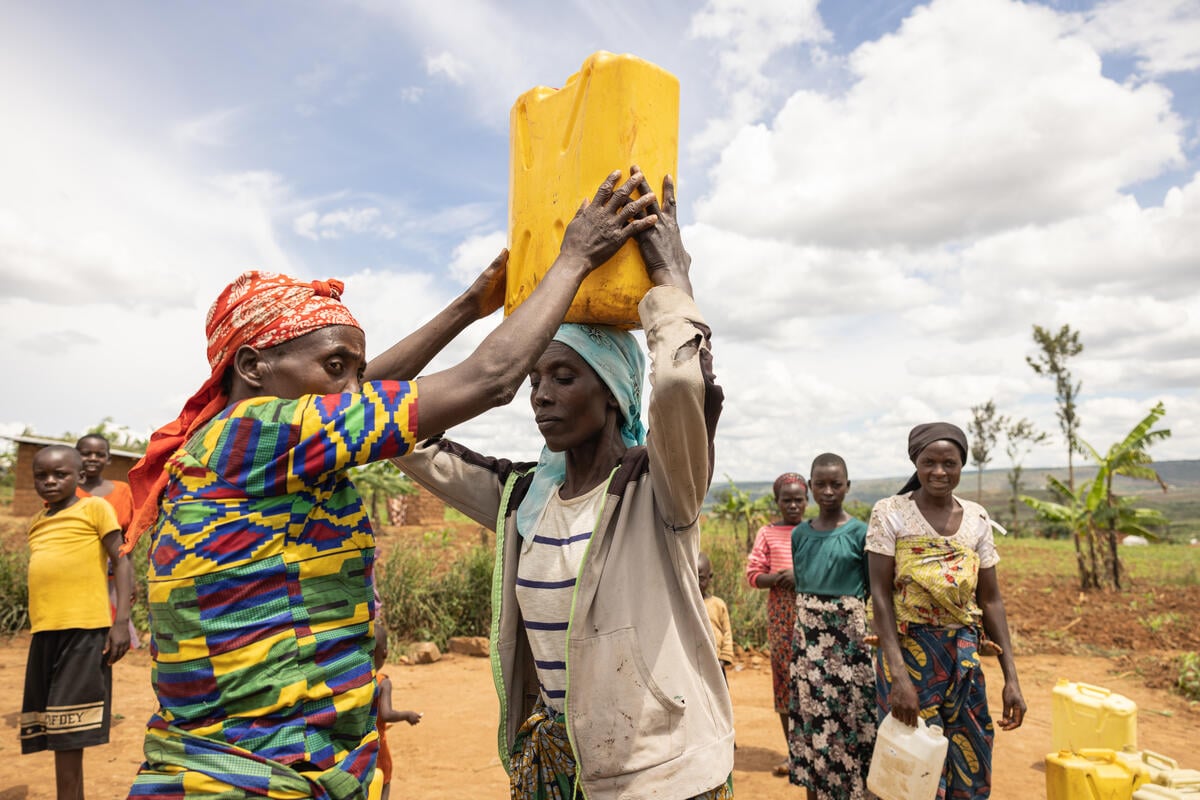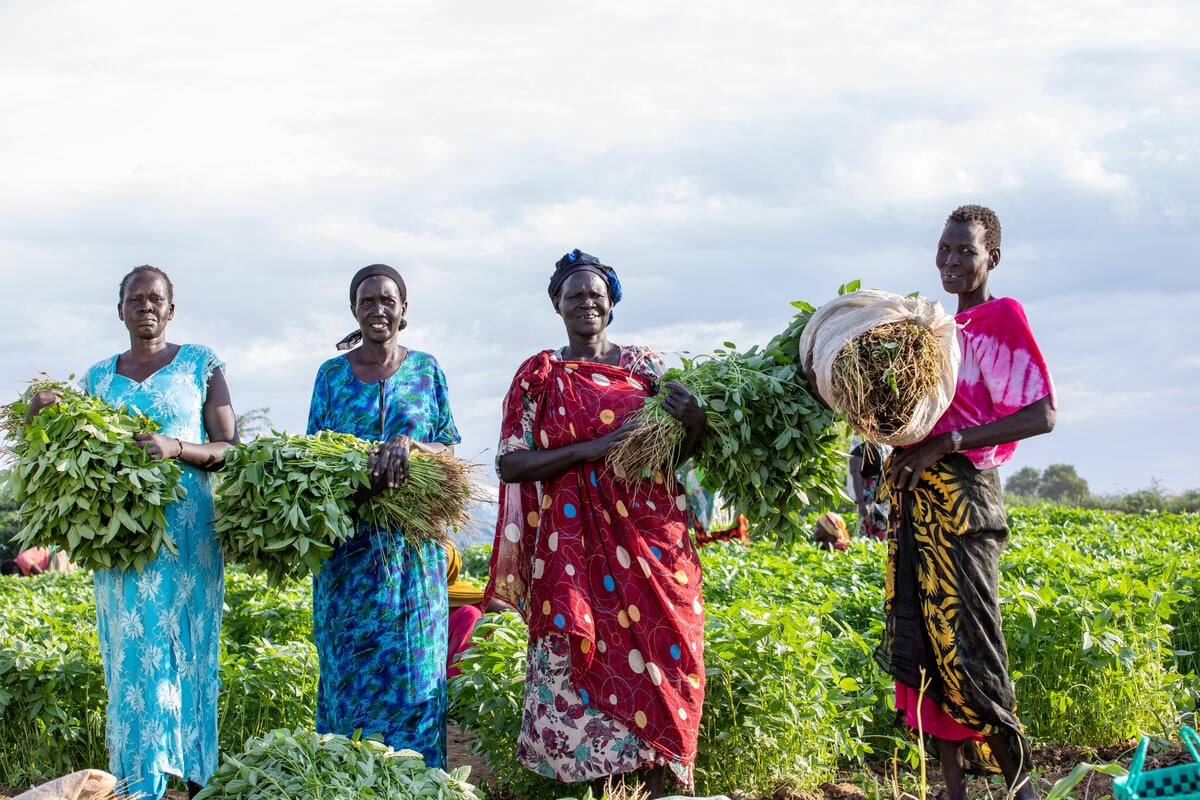Former teacher's passion revived through teaching refugees in Angola

Former teacher's passion revived through teaching refugees in Angola
By the time Augustin Tshiwala-Ngandu was 10, he knew what he wanted to be when he grew up. “My father asked me what I wanted to be when I was older. I told him, I would like to be a teacher.”
For the 48-year-old Congolese teacher, teaching is a passion that he has loved throughout his life. As a high school teacher in Kasai, in the Democratic Republic of Congo (DRC), he taught English and Literature. On weekends, he gave private lessons or volunteered as a choir director in the local church.
But when violence broke out in the Kasai region last year in March, he was forced to leave his passion and life behind. He and his then pregnant wife and two children were among over 35,000 people who sought refuge in Northern Angola.
After months of living in limbo in Cacanda reception centre in Lunda Norte Province, he and his family were relocated to Lóvua settlement, where about 13,500 refugees are living.
Augustin stayed determined throughout this trying time. He even took up Portuguese lessons while living in the reception centre.
“I wanted to learn Portuguese so as to start a new life in Angola.”
“I wanted to learn Portuguese so as to start a new life in Angola,” he explains. “I knew that we would not be returning home anytime soon.”
His determination to learn the local language paid off when in April this year, he was hired as an assistant teacher, teaching Congolese refugee students in Lóvua refugee settlement.
UNHCR, the UN Refugee Agency and its partners, has opened four schools in Lóvua to increase access to primary and secondary education for both refugee and local children. The first step is to provide Portuguese lessons to 4,700 Congolese students as schools are following the formal Angolan curriculum, taught in Portuguese.
As Augustin speaks not only French and local Congolese languages but also Portuguese, he is able to provide valuable support to the language training program for refugees. In addition, he has passed the Portuguese language test, a qualification for all assistant teachers.
“When I’m teaching, I’m happy. It’s my calling. It’s something I want,” he adds.
Over 600 refugees study at the school where he teaches, including two of his children. Although the school provides both morning and afternoon classes, the high level of attendance forces some students to take lessons while standing outside the classrooms.
“When I’m teaching, I’m happy. It’s my calling. It’s something I want.”
“More schools and class rooms are urgently needed to accommodate new arrivals to Lóvua as well as the host community children,” says Phillipa Candler, UNHCR’s Representative in Angola.
Angola is currently hosting nearly 70,000 refugees and asylum-seekers, over 38,000 of whom are from the DRC.
In March this year, UNHCR together with 30 humanitarian partners launched an appeal for US $504 million to assist people forced to flee the conflict in the DRC, which is among the world’s most complex, challenging and forgotten crises.
The 2018 DRC Regional Refugee Response Plan aims to address the challenges and gaps in supporting these refugees and their host communities, in seven neighbouring countries, as well as other countries in Southern Africa. Nearly US $64 million has been requested to provide life-saving protection and assistance including shelter, food, health services, core relief items, water, sanitation, logistics and education for up to 50,000 Congolese refugees in Angola by the end of this year.
“We are grateful to those donors who have already contributed generously,” adds UNHCR’s Candler.
“The future I imagine is one where we’re all living together in peace.”
Despite all these challenges, Augustine is grateful for the opportunity to give back through teaching. He hopes that his students can continue dreaming big.
“The future I imagine is one where we’re all living together in peace,” he says. “The children will be able to study and make progress in their lives so they can make a future.”









